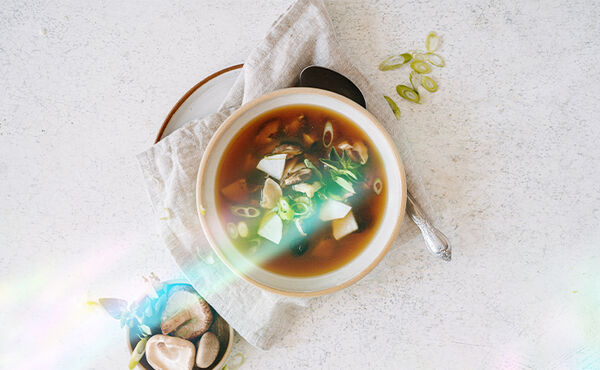Hack your diet with these empowering nutrition tips that will keep your energy levels balanced all day.
It’s no surprise that food and energy go hand in hand, but what foods give you energy more efficiently? Food is quite literally the fuel every living thing needs to keep them going, but we don’t always choose the right types of sustenance. Add energising foods to your diet and you can help give your body consistent energy to keep you going throughout the day. We spoke with nutritionist, Neil Bridgeman to find some easy ways to ensure that we can all maximise the energy potential from our daily diets.
7 diet tweaks to maintain energy levels
1. Start with breakfast
“Breakfast really does set the tone for metabolism throughout the whole day,” says Bridgeman. “I know lots of people skip eating in the morning but eating something – even small - will help regulate your energy levels and prevent energy dips later on.”
The perfect breakfast choice when it comes to maximising energy? “You need a hearty combination of protein, carbohydrates and healthy fats. Think porridge oats, mixed with nuts, seeds and berries; or tofu/egg scrambled with spinach and tomato on sourdough; or a smoothie with a quality plant-based protein added to it.”
2. Know when to snack
“If your energy levels dip mid-morning, you may feel the need for a mid-morning pick-me-up. Ditch the jitter-inducing espresso and instead grab a palmful of mixed nuts like almonds and walnuts; or a piece of fruit, like an apple or pear, which are slow energy releasing.” Increase the efficiency of your snack by pairing it “with an energy-boosting and stimulating cup of green tea, which is incredibly high in antioxidants,” says Bridgeman.
3. The ultimate lunch trifecta
It’s easy to reach for a sandwich for lunch, but this won’t do your afternoon energy levels any favours. “Carbohydrate-heavy lunch options with minimal protein will make your blood sugar crash mid-afternoon,” explains Bridgeman. “Your energy levels will plummet which means you’ll be looking to either snooze or reach for something like a chocolate bar or biscuit to get your buzz back.” The alternative? “There are three elements you need on your plate to help maintain your energy levels. Dark leafy greens like spinach or kale, healthy fats like avocado, oily fish or nuts, and a source of protein such as eggs, beans, pulses or tofu.”
Top tip: Head out for a walk after lunch, the gentle exercise reduces that post-meal glucose spike and prevents that mid-afternoon energy slump.

4. No need to skip the good stuff
“Who doesn’t love a biscuit or some chocolate every now and again? Life is too short to deny yourself.” Thank goodness for that. However, Bridgeman has a slight word of warning. “It’s a problem when it becomes a daily habit. Frequently eating food with lots of sugar means you’ll keep craving more and your energy levels will keep skyrocketing up and then plummeting down. On the days you’re not having a biscuit, reach for anything abundant in healthy fats and protein instead. This could be olives, nuts or vegetables and hummus or baba ganoush. These will keep you going strong until dinnertime.”
5. Turn the heat down
You may be surprised to know that using too much energy when cooking your food can reduce its energy capabilities in the body. “Many of our B vitamins, critical in the energy production process, are heat sensitive especially when boiling, grilling, roasting or baking is the chosen method for cooking. Steaming tends to be the best cooking method for keeping nutrients locked in, especially for vegetables. I would emphasise that less is more when it comes to steaming your veg. You’re aiming for steamed veg that is still crisp and holds its shape and colour. Raw vegetables are also great for maximum nutrients, but too much raw veg can be very taxing on the digestive system, so it’s a case of everything in moderation.”
6. Vitamin C + iron = energy
Certain foods, when paired together, maximise energy-providing potential as Bridgeman explains: “Pairing plant-based iron sources (think spinach, kale, cavalo nero, lentils, beans) with vitamin C (citrus, berries, kiwi, cherries, peppers) enhances iron absorption considerably. Iron is crucial for energy and with so many women suffering from iron deficiency or anaemia, it's a really good nutrition hack to know.”
7. Bring your dinner forward
“A decent-sized meal at dinner is key to helping you prepare your body to lower the high energy levels of the day and get ready for sleep. But what is even more key is the time you eat it,” says Bridgeman. “Research shows that those who eat within 3 hours of sleep are more likely to have a disrupted night, meaning you’ll feel more tired when you wake, compared to those who eat dinner more than 3 hours before bedtime making that the sweet spot of when to finish eating for the day.”
A nutritionist’s top 5 energising foods
When Bridgeman feels like he is hitting the wall and needs a quick energising snack, these are his go to’s:
- Hummus and celery
- A small palmful of mixed, raw nuts
- A cup of green tea
- A good quality espresso coffee if it’s with my breakfast and I’m in need of a morning boost
- A small apple, pear or banana
This article is part of our energy masterclass, to help you fill your life with positive energy and unlock your full potential. For a more positive outlook on life, our energy masterclass reveals everything you need to know to energise your body, mind and soul in small, easy, ways. Delve into our series of inspiring articles, videos and an exclusive soundscape - designed to help you feel more energised - that can be completed individually or as a 72-hour masterclass.
-
View full details349,00 kr
-
View full details349,00 kr








